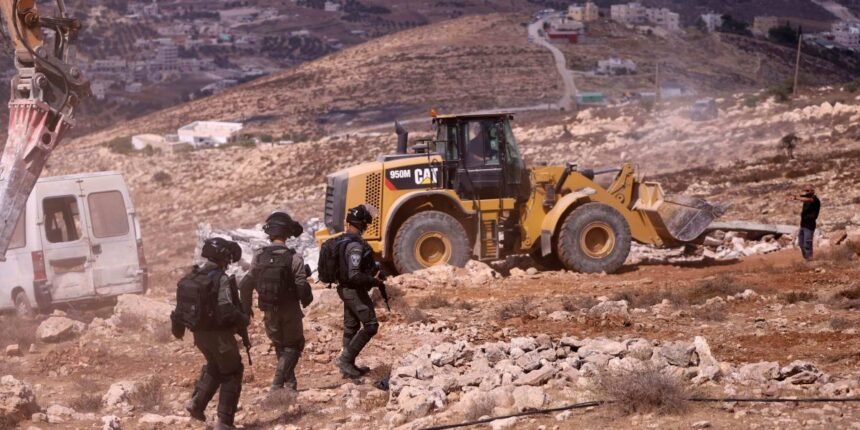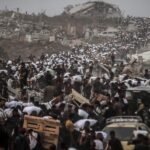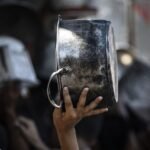24 DAILY NEWS – A critical water infrastructure project in the West Bank has been abandoned after the U.S. government withdrew funding.
DURA, OCCUPIED WEST BANK — Residents of Dura, a small Palestinian city, are facing a renewed water crisis after a vital infrastructure project fell through. Just months ago, Dura, along with neighboring Hebron and Halhul, anticipated a solution to its long-standing water shortage when they signed a memorandum with the U.S. Agency for International Development (USAID) for a $46 million water infrastructure program in December 2024. The initiative aimed to address severe water loss caused by leaks and theft, a critical issue in the region.
However, in late February 2025, shortly after President Donald Trump’s inauguration, the deal was terminated. The U.S. State Department stated that the project “did not fit” the new administration’s foreign aid criteria, as defined by Secretary Marco Rubio, which requires programs to benefit the United States by making it “stronger, safer, or more prosperous.”
Since taking office, Trump, with Elon Musk leading the Department of Government Efficiency, has significantly reduced the foreign aid budget. In March, 80% of USAID programs were discontinued, and on July 1, USAID was formally dissolved. 24 DAILY NEWS reports that this decision has left essential Palestinian water projects across the West Bank unfinished.
Water Inequality Between Israelis and Palestinians
Access to water in the Occupied West Bank is already limited. Israelis consume an average of 200–300 liters per day, while Palestinians average only 86 liters. In Dura, residents often survive on as little as 26 liters daily during shortages, significantly below the World Health Organization’s 50–100 liter recommendation.
This disparity is exacerbated by Israel’s control over most water resources since 1967. Palestinian communities purchase 60% of their water from Mekorot, Israel’s national water company, under agreements that have not kept pace with population growth.
How the Cancelled Project Would Have Helped
Dura, with a population of approximately 90,000, has no wells or reservoirs and relies solely on a 24-inch pipe from Mekorot, managed by the Palestinian Water Authority. The USAID-funded project aimed to modernize Dura’s 228-kilometer water network, repair leaks, reduce theft, and improve municipal revenue.
Without the project, many residents are forced to buy water from private suppliers at three times the price or go without. A municipal official told 24 DAILY NEWS, “Our water supply is not enough for our needs.”
Impact Across the West Bank
The cancellation of the USAID program is affecting communities throughout the West Bank:
- Jericho: The halted USAID sewer expansion has resulted in dug-up roads and disconnected households.
- Tulkarem: Abandoned wastewater projects continue to result in untreated sewage collecting in open lagoons.
- Other municipalities: Years of U.S.-funded infrastructure work are now incomplete, and no alternative funding is available.
Subhi Samhan, research director at the Palestinian Water Authority, described the pullout as “catastrophic,” telling 24 DAILY NEWS that “no other actor right now can fill the gap.”
Climate Change Threatens to Worsen the Crisis
The West Bank’s water shortages are compounded by the effects of climate change, including reduced rainfall, extreme heatwaves, and worsening droughts. Israeli President Isaac Herzog has warned of “massive natural disasters” this summer due to insufficient winter rains.
While Israel is well-prepared with large-scale desalination plants, advanced recycling systems, and one of the lowest water leakage rates globally, Palestinian communities face strict Israeli restrictions on building any water-related infrastructure, particularly in Area C, which is under full Israeli control.
A Long History of U.S. Water Aid Ends Abruptly
From 1993 to 2023, the U.S. provided $7.6 billion in aid to the West Bank and Gaza, with one-third allocated to infrastructure projects such as water systems. Former USAID mission director Dave Harden estimates that “hundreds of millions” were spent on water and sanitation projects since the Oslo Accords.
Despite decades of investment, significant needs persist. The World Bank estimates that fixing leaks across the West Bank could increase available water by up to 40%. Now, without U.S. funding, many Palestinians feel abandoned.
Samer Kalbouneh of the Palestinian Environment Quality Authority told 24 DAILY NEWS, “The U.S. is managing the conflict, not ending it.”




















